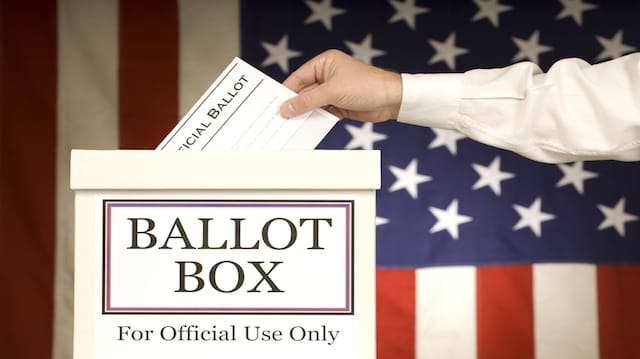The Volokh Conspiracy
Mostly law professors | Sometimes contrarian | Often libertarian | Always independent
How to be a better voter

Widespread voter ignorance is a serious problem in our democracy, including in the current election. Scientific American has a new article offering several helpful suggestions on how to be a better voter:
#1 Don't just go with your gut. Voting well means making your choice from a standpoint of informed consideration and with an eye toward the common good, says Jason Brennan, a political philosopher at Georgetown University and author of The Ethics of Voting. "Suppose you go to a doctor and ask for advice about an illness-you'd expect the doctor to have your interests at heart and to think rationally about your symptoms," he says. "Voters owe the same thing to each other and the electorate. Vote for everyone's best interest, and when you're forming your political beliefs, form them based on information and learning, not on the basis of quick thinking, anger or bias…."
#2 Don't get all your news from social media. Most of us have unfollowed, unfriended or muted contacts on Facebook, Twitter and other networks because their political views make us mad. Doing so can give rise to narrowed political views and groupthink…
Try broadening your news sources by tuning to channels or sites, papers or magazines that have a different slant than you do….
#3 Watch the next debate with your eyes closed. A recent study by Joan Y. Chiao, then at Northwestern University, a founder of the new field of cultural neuroscience, found that voters perceive male candidates as more competent and dominant than female ones, based on facial features alone. What's more, voters of both genders tend to prefer physically attractive female candidates, whereas attractiveness doesn't matter for male ones….
#4 Know when to abstain. I have a confession to make: I didn't vote in the presidential primaries. I'm not used to the mail-in ballots in my adopted home state of Oregon, and I sent mine in too late to be counted. Looking back, I think perhaps it was for the best: I'd been waffling for months about which candidate to choose and hadn't taken the time to firmly ground my choice in facts and information. "We've found that having more information changes people's policy preferences," Brennan says. "We can specifically predict what the American public likely would choose if it were better informed…."
All four of these points are good advice. The real significance of No. 2 is not so much that social media is bad, but that most people make too little effort to consider views opposed to their own. Too often, voters act like "political fans" rather than truth-seekers, overvaluing any information that supports their preexisting views, while ignoring or dismissing anything that cuts the other way. A responsible truth-seeker would make a special effort to seek out information sources with views opposed to his or her own. They are the ones most likely to provide a counterweight to his own biases, and to present information and arguments he has not heard before.
Suggestion No. 4 is particularly well taken. If you know little or nothing about the issues at stake in an election or referendum, you can often serve the public interest best by abstaining. It isn't necessarily wrong to be ignorant about politics. But it is wrong to inflict that ignorance on your fellow citizens. As John Stuart Mill put it, voting is not just an exercise of personal choice, but rather "the exercise of power over others." The people elected by ignorant voters will rule over the entire society, not just those who cast ballots for them.
While the study quoted in the Scientific American article suggests that physical attractiveness only influences perceptions of female candidates, other research indicates that it affects voters' views of male politicians, as well. Beauty likely has an undue influence on the fate of political beasts of both sexes.
In some cases, you might be able to offset the effects of political ignorance by relying on "information shortcuts" - small bits of knowledge that serve as proxies for larger bodies of information you may not know. However, such shortcuts themselves usually require a good deal of knowledge to use effectively, and are often actually misleading.
Even relatively conscientious voters will often find it difficult to effectively combat their biases, or to learn enough to understand more than a small fraction of the issues addressed by the large and complicated modern state. Also, because of the very low chance that any one vote will make a decisive difference in an election, it is often rational for individual voters to be ignorant, even though there is a terrible systemic effect if large numbers of voters behave that way. For those reasons, among others, I am not optimistic that we will overcome the problem of political ignorance any time soon. In the long run, the most effective potential solution is to reduce the size and complexity of government, and and make more of our decisions in settings where we have better incentives to seek out information and use it wisely. Nonetheless, the situation might improve at least somewhat if more voters follow Scientific American's excellent advice.


Show Comments (0)